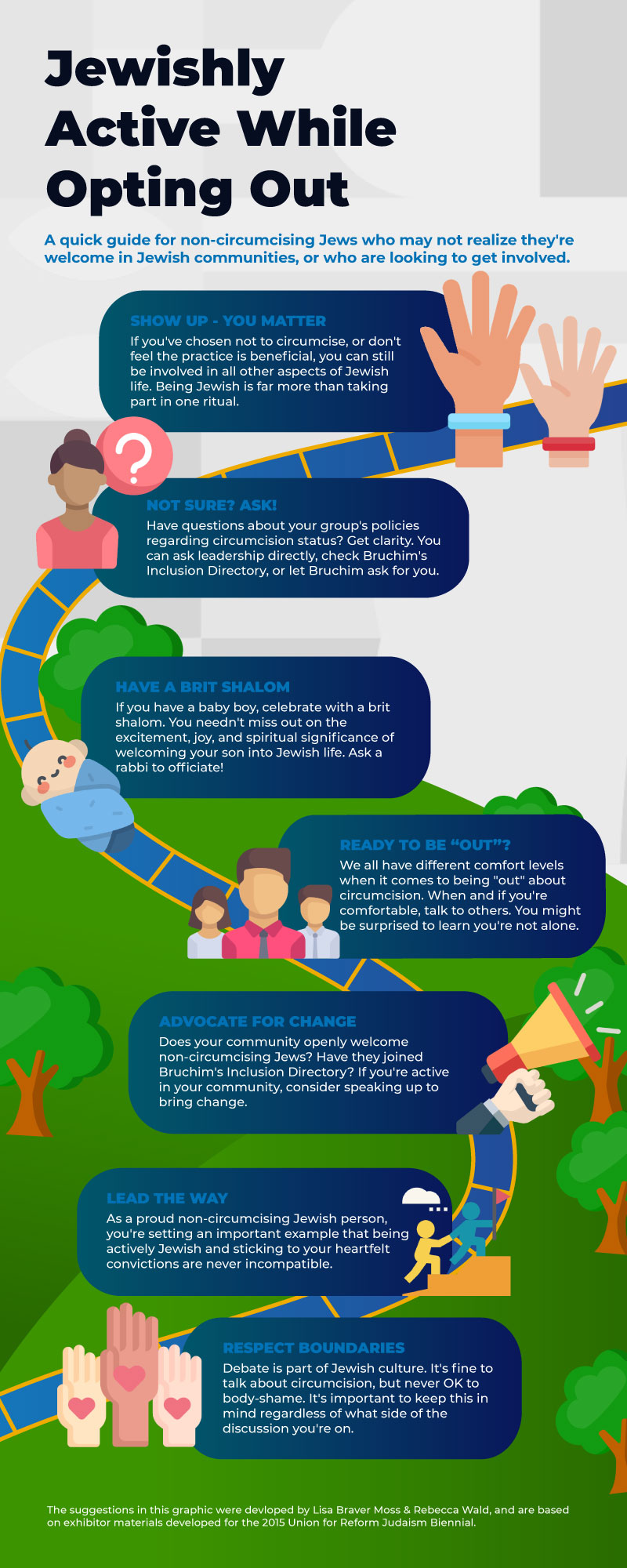Bruchim habaim! Blessed are those who come!
This is a Hebrew greeting of welcome, and also the inspiration for our name. Bruchim believes non-circumcising Jews should be welcome in Jewish life — and should know they’re welcome.
If you hold traditional views about brit milah, you might be surprised to learn that some parents are opting out. Maybe you’re fine with this, or maybe you think it’s a mistake. Whatever your feelings, Bruchim hopes you’ll agree that Jewish communities are strengthened when everyone is included.
The fact is, many non-circumcising Jews already take active roles in Jewish groups — as congregation and board members, religious school teachers, even clergy. Many more are considering affiliation and involvement. But are they welcome? And, if so, how is the welcome being conveyed?
Right now non-circumcising Jews are left to guess whether they’re wanted in Jewish spaces.
It’s true that no one checks circumcision status at the door, but solving the inclusion puzzle is more complicated than it might appear. Parents may be hesitant to approach clergy about having a brit shalom (a naming ceremony for a baby who is intact). They may wonder: If leadership doesn’t agree with my choice, will things be awkward going forward? Will I be lectured? What about religious school? Will there be repercussions if it’s known my child isn’t circumcised? Can my child have a bar mitzvah and be called to the Torah as an adult at my synagogue? These kinds of questions, when unresolved, present barriers to full involvement.
Without realizing it, Jewish institutions may be turning away some of their most caring and forward-thinking potential affiliates.
In the absence of an explicit message of acceptance, some non-circumcising Jews quietly step away from Jewish involvement, or decide not to engage in the first place, often at the precise time when they’re most likely to want to engage — when getting married and starting families.
Although much of Bruchim’s work pertains to families with young children, it’s important to realize the broader scope. Children become teenagers and adults, and there are now a number of adults in the Jewish community who are intact. Communities include the grandparents and extended family. Jews of all sexual orientations, genders, ages, and backgrounds who are uncomfortable with the circumcision tradition may actively seek to engage with welcoming communities.
Bruchim encourages the Jewish involvement of the growing number of Jews choosing not to circumcise.
With circumcision rates declining in America, and also among American Jews, the stakes are high, both for those who opt out, and for Jewish institutions.
Bruchim encourages non-circumcising Jews to get involved with Jewish groups (if they’re not already), and helps them locate groups that are accepting. We also provide resources to educate Jewish institutions about the presence of non-circumcising Jews, and about their unique concerns, while suggesting concrete ways that groups of all kinds can extend an open and meaningful welcome.


